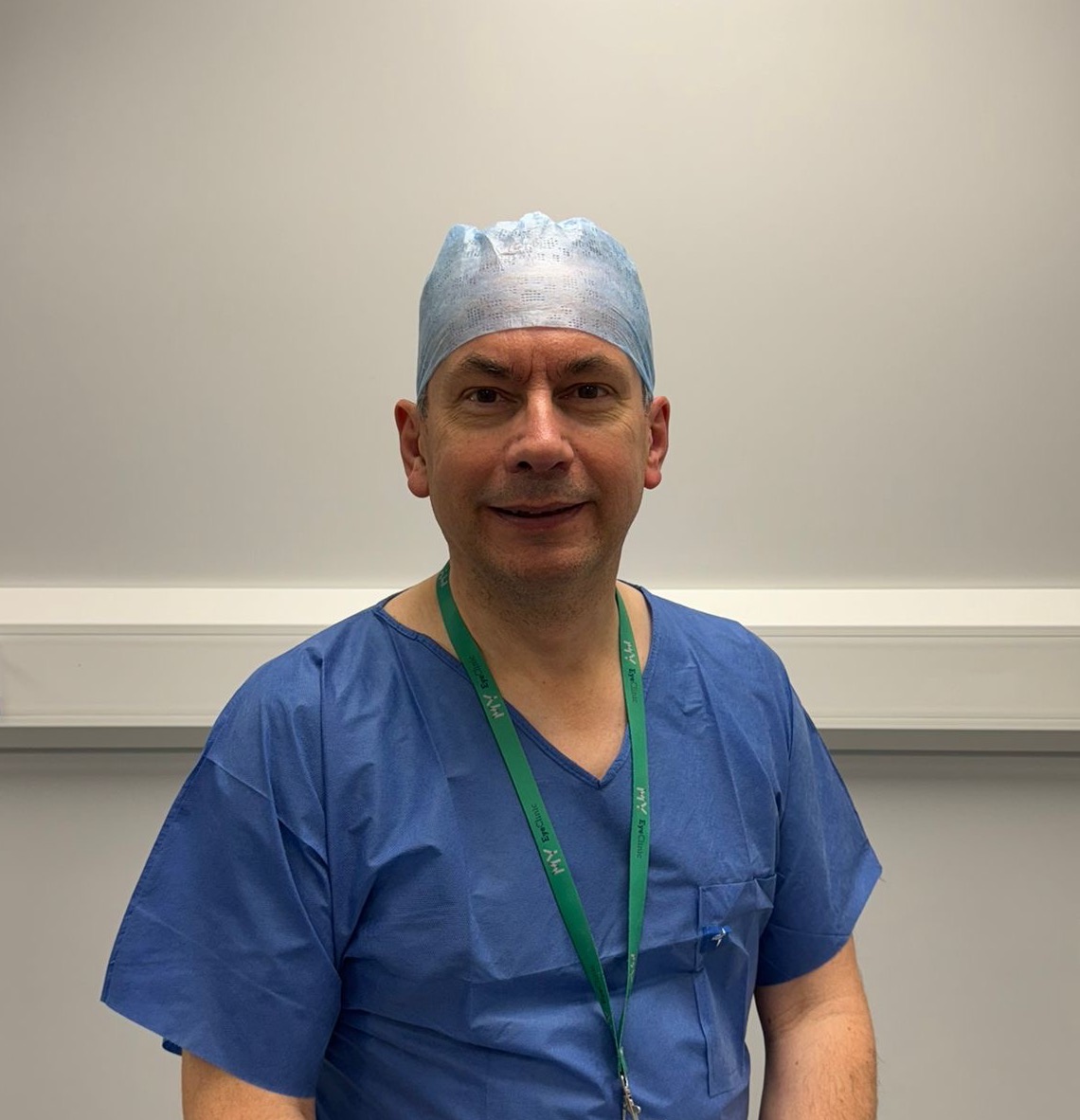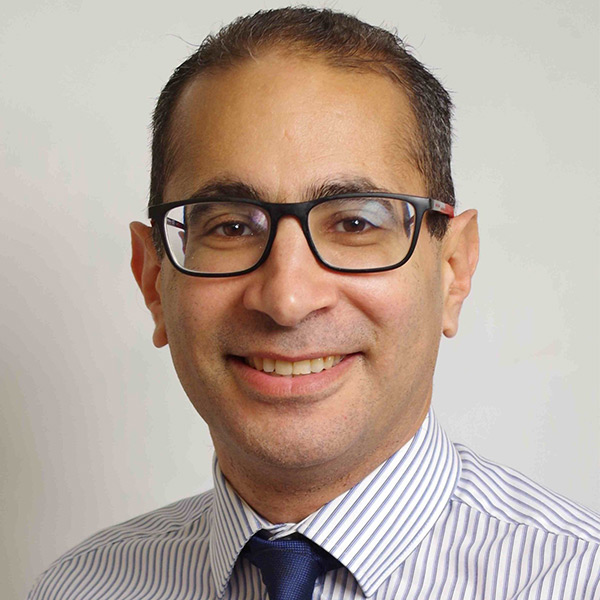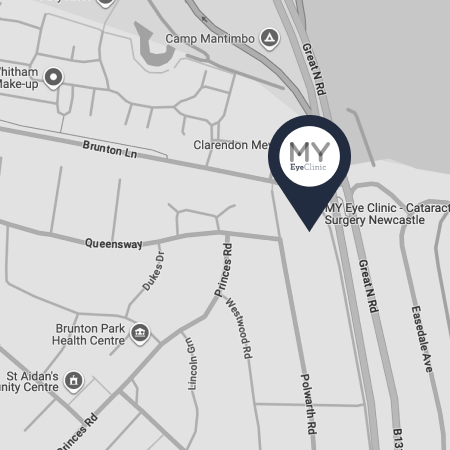Get answers about glaucoma treatment for healthier vision
Discover how our targeted treatments can protect your sight and learn how we help you manage glaucoma effectively
Glaucoma is a common eye condition which can affect people of all ages. It is however most common in adults in their 70s and 80s. It is the most common cause of irreversible blindness worldwide. In most cases glaucoma is caused by an increase in the intraocular pressure. Your eye pressure results from the balance between the rate at which aqueous fluid is produced within the eye and the rate at which it leaves through the drainage angle of the eye.
Glaucoma generally develops slowly over many years, damaging the optic nerve which connects the eye to the brain. Commonly the initial symptom of uncontrolled glaucoma is a painless loss of peripheral vision. It is essential to detect and treat raised intraocular to preserve optic nerve function. There are various types of glaucoma treatment.
The main focus of glaucoma treatment is to lower the pressure inside your eye, called intraocular pressure. The best treatment option for you depends on your unique needs and the type of glaucoma you have. Treatment options may include special eye drops, oral medications, laser therapy, surgery, or sometimes a combination of these methods.
Eye Drops:
Treatment usually starts with prescription eye drops. These drops help lower eye pressure by either improving fluid drainage from the eye or reducing the amount of fluid the eye produces.
Oral Medications:
If eye drops alone don’t lower your eye pressure enough, we may prescribe oral medication to help.
Laser and Surgical Treatments:
If eye drops or oral medications aren’t sufficient, we may consider laser or surgical options to improve fluid drainage and lower pressure in the eye. Here’s a quick overview:
- Laser Therapy: In a procedure called laser trabeculoplasty, we use a focused laser beam to open blocked channels in the eye’s drainage system (trabecular meshwork). It may take a few weeks for this to show full results.
- Filtering Surgery (Trabeculectomy): Here, we create a small opening in the white part of the eye (sclera) and remove part of the drainage system to improve fluid flow.
- Drainage Tubes: Your eye surgeon may insert a small tube to help drain extra fluid and lower pressure.
- Minimally Invasive Glaucoma Surgery (MIGS): MIGS procedures are designed to lower eye pressure with a simpler recovery and lower risk than traditional surgeries. We’ll discuss the different MIGS options to see which is best for you.
Eye Drops and Medications
Advantages:
Eye drops and medications are often the first step in managing glaucoma. They’re usually easy to use, effective at lowering eye pressure, and less invasive than other options. For many, this approach works well without requiring any procedures.
Disadvantages:
However, they can have some downsides. Some people experience eye irritation, redness, or mild allergic reactions. Taking them every day can be challenging to remember, and there may be ongoing costs depending on your insurance.
Laser Trabeculoplasty
Advantages:
Laser trabeculoplasty is a laser treatment that can help reduce eye pressure, which may allow some people to reduce or even stop using eye drops. It’s generally safe, with few side effects, and can be a good choice if your eye pressure isn’t extremely high.
Disadvantages:
This is still a procedure, and as with any medical procedure, there are some risks. It’s important to know that while laser treatment can be effective, it isn’t a cure. The results may lessen over time, meaning you may need more treatments later on. Choosing between eye drops and laser treatment often depends on personal preference—some prefer avoiding procedures, while others find the daily use of eye drops inconvenient.
Surgical Treatment
Advantages:
Surgery can be very effective in slowing down the progression of glaucoma and often has high success rates.
Disadvantages:
As with any surgery, there are potential risks. These may include eye pressure that is either too low or too high afterward, inflammation (swelling) inside the eye, bleeding, or blurred vision after surgery. In rare cases, a serious infection could develop that may threaten sight.
Risks of Eye Drops and Medications
Using eye drops and medications can come with some risks, such as:
- Side effects like eye irritation, redness, or allergic reactions.
- The challenge of remembering to use them every day, which can be difficult, especially if you have a busy routine.
Risks of Laser Trabeculoplasty
Laser trabeculoplasty can also have some risks, including:
- Mild inflammation after the procedure, which can usually be managed with eye drops or anti-inflammatory medicine.
- In about 5% of cases, eye pressure may temporarily increase after treatment. This typically goes back to normal within 24 hours and can be managed with glaucoma medications if needed.
Risks of Surgical Treatment
Surgery is often recommended for advanced glaucoma cases, where the potential benefits outweigh the risks. However, like any surgery, there are some risks, including:
- Vision loss, though this is rare.
- Bleeding inside the eye.
- Infection, which can affect sight.
- Low eye pressure (hypotony), which can affect eye health.
- Scarring in the eye.
- Development of cataracts (clouding of the lens), which can cause blurry vision.
Your eye doctor will discuss these risks with you, helping you understand each option. Together, we’ll make a decision that best fits your needs, ensuring you feel informed and comfortable with your glaucoma treatment plan.
The treatment for your glaucoma is personalised based on how advanced your condition is and what fits best with your lifestyle. Here are some options:
- Eye Drops: These help lower eye pressure by either reducing the amount of fluid your eye makes or by improving how the fluid drains out.
- Laser Treatment: This uses a gentle laser to open up blocked channels in the eye’s drainage system, helping to lower eye pressure.
- Surgery: Surgical procedures can create a new drainage path or place a tiny tube in the eye to help fluid drain and reduce pressure.
Each of these treatments works to control eye pressure, aiming to slow down or prevent further vision loss. Your eye doctor will guide you to the option that’s best suited to your needs.
Managing glaucoma is a team effort between you and your doctor. Your eye doctor will guide your treatment, and it’s essential for you to follow through—especially with using eye drops as prescribed.
For Eye Drops and Medications:
Your journey begins with regular visits, typically every 3 to 6 months. These check-ins help us see how well the treatment is working and make any necessary adjustments.
For Laser Trabeculoplasty:
We start by examining your eye and measuring the pressure. We’ll put drops in your eye to numb it and another drop to make the pupil smaller. You’ll sit at a machine similar to the one used in eye exams, but it has a laser. A special contact lens is placed on your eye, allowing us to apply the laser precisely to help improve fluid drainage. Don’t worry—you won’t feel anything thanks to the numbing drops.
For Surgery:
Surgery focuses on creating a pathway in the eye to reduce pressure. The specific procedure depends on the type and stage of your glaucoma, as well as your overall eye health.
Take control of your vision in 3 Simple Steps
Taking charge of glaucoma doesn’t have to be overwhelming. Here’s how you can start your journey to healthier, protected vision

Step 1: Get in touch
Reach out to our team to book a comprehensive glaucoma assessment. Call us at 0191 743 9927 or contact us online to find a time that works for you. it’s your first step towards protecting your vision

Step 2: We'll meet
During your appointment, we’ll thoroughly examine your eye health, measure your eye pressure, and evaluate your optic nerves. This detailed assessment helps us craft a treatment plan tailored to your needs.

Step 3: Experience lasting protection
With timely and targeted treatment, you’ll enjoy the peace of mind that comes from knowing your vision is protected. Count on us to support you at every stage, helping you preserve your eye health for the future.
Join thousands who’ve gained freedom from glasses and contacts
Discover how they ditched their dependence and see how you can, too
We have replaced the images of real patients who provided these testimonials to protect their privacy.

Hi, I’m Rob Boyce
After training as an engineer and research scientist, I pursued medicine at Nottingham University, followed by advanced ophthalmology training. With over 20 years as a Consultant Ophthalmologist specialising in Oculoplastic and Lacrimal Surgery, I’m committed to delivering the highest quality care at MY Eye Clinic, using cutting-edge techniques and patient-centred care.
Mr Rob Boyce
Founder and Owner of MY Eye Clinic










